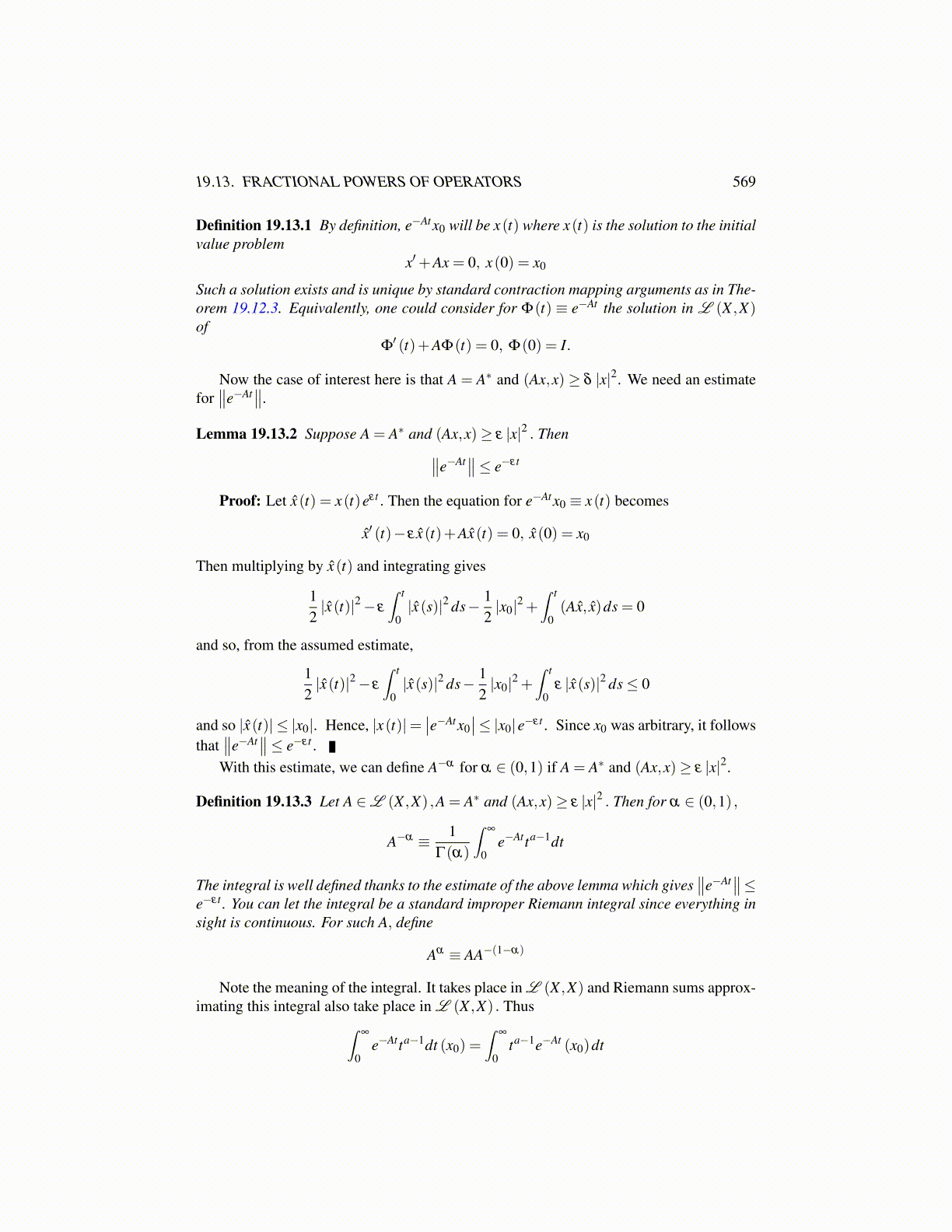
19.13. FRACTIONAL POWERS OF OPERATORS 569
Definition 19.13.1 By definition, e−Atx0 will be x(t) where x(t) is the solution to the initialvalue problem
x′+Ax = 0, x(0) = x0
Such a solution exists and is unique by standard contraction mapping arguments as in The-orem 19.12.3. Equivalently, one could consider for Φ(t) ≡ e−At the solution in L (X ,X)of
Φ′ (t)+AΦ(t) = 0, Φ(0) = I.
Now the case of interest here is that A = A∗ and (Ax,x) ≥ δ |x|2. We need an estimatefor∥∥e−At
∥∥.
Lemma 19.13.2 Suppose A = A∗ and (Ax,x)≥ ε |x|2 . Then∥∥e−At∥∥≤ e−εt
Proof: Let x̂(t) = x(t)eεt . Then the equation for e−Atx0 ≡ x(t) becomes
x̂′ (t)− ε x̂(t)+Ax̂(t) = 0, x̂(0) = x0
Then multiplying by x̂(t) and integrating gives
12|x̂(t)|2− ε
∫ t
0|x̂(s)|2 ds− 1
2|x0|2 +
∫ t
0(Ax̂, x̂)ds = 0
and so, from the assumed estimate,
12|x̂(t)|2− ε
∫ t
0|x̂(s)|2 ds− 1
2|x0|2 +
∫ t
0ε |x̂(s)|2 ds≤ 0
and so |x̂(t)| ≤ |x0|. Hence, |x(t)|=∣∣e−Atx0
∣∣≤ |x0|e−εt . Since x0 was arbitrary, it followsthat
∥∥e−At∥∥≤ e−εt .
With this estimate, we can define A−α for α ∈ (0,1) if A = A∗ and (Ax,x)≥ ε |x|2.
Definition 19.13.3 Let A ∈L (X ,X) ,A = A∗ and (Ax,x)≥ ε |x|2 . Then for α ∈ (0,1) ,
A−α ≡ 1Γ(α)
∫∞
0e−Atta−1dt
The integral is well defined thanks to the estimate of the above lemma which gives∥∥e−At
∥∥≤e−εt . You can let the integral be a standard improper Riemann integral since everything insight is continuous. For such A, define
Aα ≡ AA−(1−α)
Note the meaning of the integral. It takes place in L (X ,X) and Riemann sums approx-imating this integral also take place in L (X ,X) . Thus∫
∞
0e−Atta−1dt (x0) =
∫∞
0ta−1e−At (x0)dt